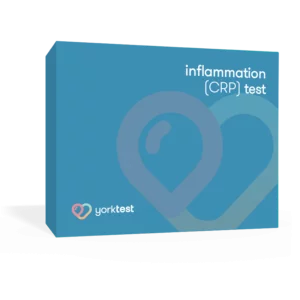The UK ranks as one of the world’s largest importers of wine, with the average Brit drinking 37 bottles of wine per year. So there’s no doubt that we as a nation love drinking wine! However, unfortunately for some, the pleasure of drinking wine is spoiled by adverse reactions from wine allergies and intolerances.
Conditions like a wine allergy or intolerance aren’t as widely discussed as food allergies, yet they can still significantly impact quality of life for those affected.
What is a Wine Allergy and Intolerance – Are they the same?
The terms “allergy†and “intolerance†are quite often used interchangeably, but they are extremely different.
An allergy is an immediate immune system response to a specific substance, known as an allergen. The reaction usually occurs within minutes. With a wine allergy, the allergens could be proteins found in grapes, yeasts used for fermentation, or other additives. When someone allergic consumes wine containing their allergen, it usually triggers an abnormal immune response. The body’s immune system mistakenly identifies the allergen as a threat and releases antibodies to attack it, leading to the release of histamines and other inflammatory chemicals. This can cause allergic symptoms like hives, swelling, digestive issues or even potentially life threatening anaphylaxis.
A wine intolerance on the other hand is more complicated. This is usually a delayed reaction (hours or days) that may or may not involve the immune system. Sometimes intolerances occur when the body lacks sufficient enzymes or chemicals to properly digest or metabolise certain substances in wine. For example, a lack of the enzyme alcohol dehydrogenase can mean that you can’t breakdown alcohol properly which can lead to severe systemic intolerance symptoms. It’s also common to have an “intolerance†to sulphites which are used as preservatives in wine; although reactions to sulphites are sometimes referred to as allergies which can also be confusing! Immune system intolerance reactions to wine involve IgG antibodies. These are delayed reactions to wine ingredients such as yeast and different grape varieties. Symptoms can be as wide ranging as digestive problems, migraines and headaches, low energy and low mood; often similar to having a hangover. So if your hangover seems worse than expected it maybe that you have an intolerance of some sort going on.
Common Wine Allergens
Wine itself as a whole doesn’t inherently cause allergies, but it contains a number of compounds that can trigger reactions in susceptible individuals.
Some of the most common wine allergens include:
Sulphites
Sulphites are preservatives that are used in wine making to prevent oxidation and bacterial growth. Most people can tolerate sulphites, but they can cause allergic or intolerance reactions and exacerbate asthma symptoms in sulphite-sensitive individuals. Symptoms might include hives, stomach cramps, respiratory issues like sneezing, wheezing, diarrhoea and also, rarely, anaphylaxis.
Histamines
Histamines are naturally occurring compounds that are produced during the fermentation process of wine. They can trigger chemical reactions and cause symptoms like headaches, skin flushing, nasal congestion and asthma attacks in those with histamine intolerances. Red wines tend to contain higher histamine levels.
Tannins
Tannins are polyphenolic compounds responsible for the dry, puckery mouthfeel of wines, especially reds. Allergic reactions to tannins aren’t common, but it can cause hives, stomach issues and nasal congestion in susceptible people by triggering the release of histamines.
Proteins
Proteins from grapes and yeasts used in fermentation can also act as allergens. Grape proteins and yeast proteins like glycoproteins have been identified as triggers for both IgE-mediated allergic responses like asthma, hives and even anaphylaxis, and also IgG intolerance reactions such as digestive problems, headaches, migraines, low energy and low mood.
There are also other compounds like fining agents used to clarify wine like egg whites, milk proteins and fish derivatives that could potentially cause issues for those with food allergies and intolerances.
These allergens listed can prompt allergic reactions by setting off the body’s inflammatory response when the immune system encounters them and incorrectly perceives them as threats. The combinations and concentration of these compounds will vary across the many different types of wine, which could explain why some wines are better tolerated than others by those who are allergic and/or intolerant.
Signs and Symptoms of a Wine Allergy or Intolerance
As we know, a wine allergy and a wine intolerance are two different things, therefore the signs and symptoms of both also vary – but there is some overlap, which is why it’s important to be aware of them all.
Wine Allergy Symptoms
Wine allergies can trigger a variety of symptoms due to the body’s overactive immune response or intolerance response to compounds in wine.
Skin Reactions
- Hives, rashes or flushed skin – Raised, itchy bumps or red patches may appear within minutes or hours after drinking wine. It can spread across large areas of skin.
- Itching or tingling sensations – Along with visible rashes, some may experience tingling, prickly feelings under the skin.
- Swelling of the face, lips or tongue –Â Facial swelling, particularly around the lips and eyes, is a common allergic reaction that can make breathing difficult.
Respiratory Issues
- Wheezing or difficulty breathing – Wine allergies can trigger the airways to constrict, causing difficulty breathing.Â
- Nasal congestion, sneezing, runny nose – Like hay fever, allergic rhinitis symptoms like congestion and excessive mucus can happen.Â
- Chest tightness or asthma symptoms – Those with asthma may experience worsening of breathing issues like shortness of breath and chest tightness.
Digestive Problems
- Nausea, vomiting – The gut can have an extreme reaction to wine allergens, causing queasiness and vomiting in some individuals.
- Abdominal pain or diarrhoea – Painful abdominal cramping and urgency to have a bowel movement are possible.
- Bloating, gas and stomach pain – Even minor amounts of wine can trigger intense gas, bloating and generalised stomach discomfort.
Other signs of a wine allergy can include headaches, migraines, dizziness, and anxiety.
Wine Intolerance Symptoms
Digestive issues
- Bloating, gas and abdominal pain – Wine compounds like sulphites or tannins can lead to excessive bloating and gas pains.
- Diarrhoea and cramping – Frequent diarrhoea and intestinal cramping are common with wine intolerances.
- Nausea and vomiting – Though far less common than allergies, feeling ill and vomiting can still occur with intolerances.
Other symptoms of a wine intolerance can include headaches, migraines, skin problems, low energy, low mood and nasal congestion. Alcohol intolerance can cause headaches and flushing or reddening of the skin especially on the neck or face.
Red Wine Allergies
Allergic reactions can happen with any type of wine, but red wines may be more likely to cause issues for certain individuals due to their unique composition.
One key factor is that red wine generally contains higher levels of histamines compared to white wine. As discussed earlier, histamines are natural compounds that can trigger chemical reactions (headaches, respiratory issues). The longer fermentation and ageing processes of red wines allow more histamine accumulation.
The proteins found in grape skins may also be more problematic for those with wine allergies. Since red wines are fermented with the grape skins included, they may contain higher levels of the proteins that can trigger IgE- and/or IgG- mediated immune reactions.
Additionally, red wines are abundant in tannins. Tannins may exacerbate allergic responses by prompting mast cells to release histamines. This can lead to swelling, itchy rashes, and digestive problems.
Diagnosing and Managing a Wine Allergy or Wine Intolerance
Identifying wine allergies and intolerances can be tricky since symptoms may be delayed.
The first step is often keeping a detailed food diary to track reactions after consuming different wines and look for patterns. It involves meticulously recording everything you eat and drink, along with any symptoms experienced and the timing of those symptoms. For potential wine allergies/intolerances, make note of the specific type of wine, ingredients, brand and so on. Track details like how much you consumed, if you had it with food, and when symptoms appeared (immediately, hours later, etc). Also note other foods or drinks consumed around the same time period.
An elimination diet is another method to identify whether you may potentially be allergic or have an intolerance to wine. With this, you completely remove wine and other suspected triggers for a period of time (usually two to six weeks) before reintroducing them back into your diet one by one. Reintroducing a small amount of wine and monitoring delayed reactions can confirm if it is in fact a trigger for symptoms like headaches, gastrointestinal issues, etc. You may find you react to specific wine styles (dry reds) versus others (crisp whites). This can isolate whether the trigger is a compound like tannins or sulphites.
To find out more, food intolerance testing is recommended. This involves having your blood analysed for antibodies that react to specific allergens. At YorkTest, we offer both a Premium Food Intolerance test and a Food and Environmental Allergy Test to cover all bases. Our tests can identify if you might have a food intolerance by checking for IgG antibody reactions, as well as testing for IgE antibodies that look for food allergies. It’s as simple as taking a finger-prick blood sample and returning it in the post – you’ll receive your results within 7 days.













